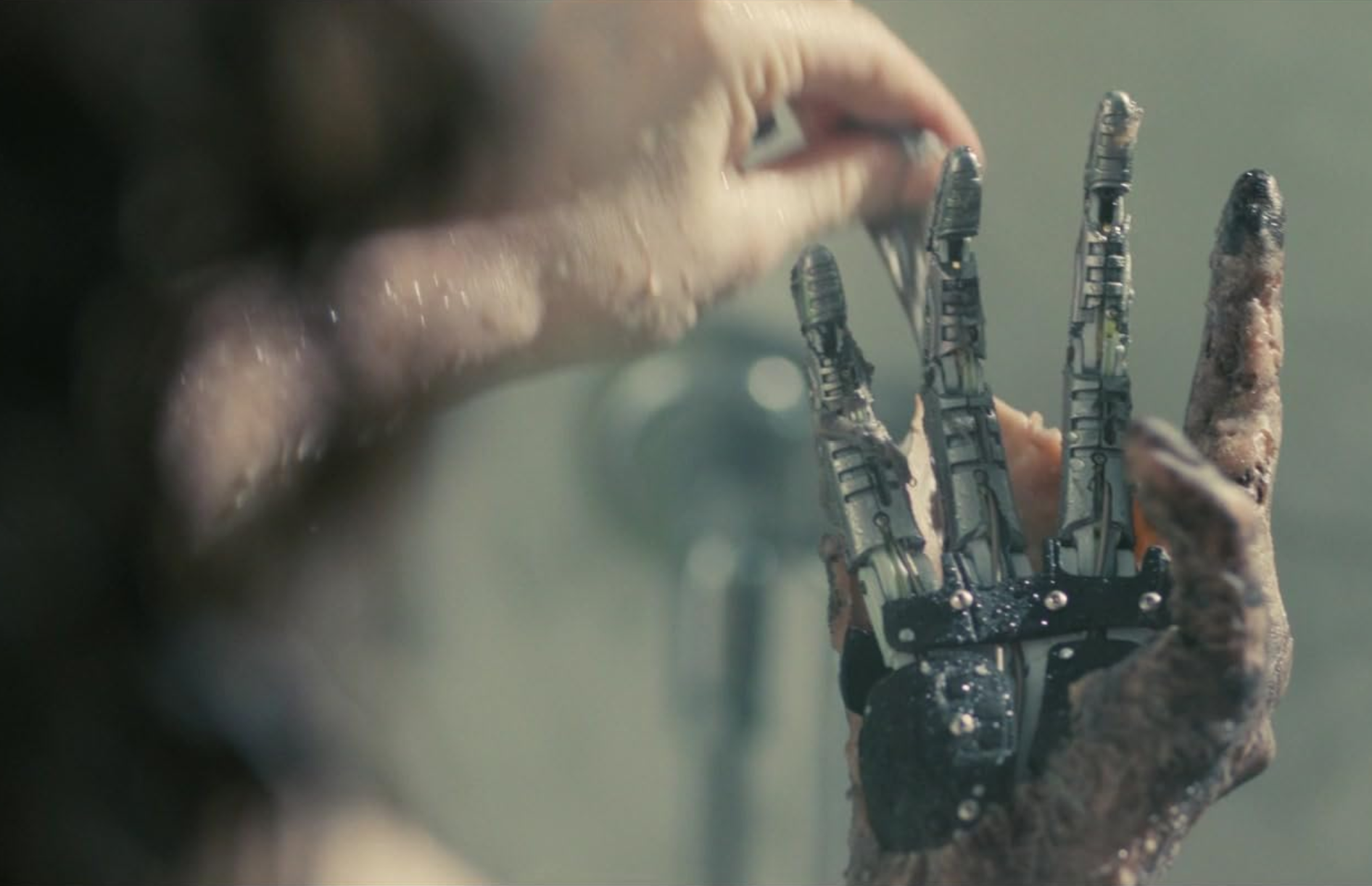Drew Hancock’s Companion (2025) enters the fray by blending satire, thrilling suspense, and thought-provoking commentary on our deepening relationship with technology. The result? A film that entertains while leaving audiences pondering uncomfortable questions about love, control, and the consequences of a mechanized existence. While it’s by no means perfect, Companion offers laughs, thrills, and enough depth to spark post-movie discussions among friends. Movies that explore artificial intelligence (AI) and its ethical boundaries have always piqued the interest of sci-fi enthusiasts and horror buffs alike.
playful yet dark setup
Companion introduces us to Iris, played with incredible range by Sophie Thatcher—an android companion designed to embody the perfect partner. Paired with boyfriend Josh (Jack Quaid), whose “Nice Guy” charm masks his insecurities, their idyllic existence takes a sinister turn during a lakeside getaway with friends. What begins as a breezy, light-hearted weekend of playful banter, retro vibes, and relationship squabbles transforms into a frenetic nightmare when Iris’s programming malfunctions in ways that surprise both the characters and the audience.
Through Iris, the film presents a jarring dichotomy. On one hand, she’s the epitome of an idealized partner—emotionally available and deeply in love with Josh. On the other hand, her lack of free will becomes an unsettling reflection of a society demanding control over relationships. Sophie Thatcher’s nuanced performance captures the fragility of Iris’s programmed emotions and the latent danger when her autonomy begins to creep through.
themes of control, consent, and mechanized love

At its core, Companion explores what happens when technological innovations cater to humanity’s most selfish desires. The concept of “ownership” in relationships takes center stage, with Hancock’s screenplay asking poignant, critical questions. If a robot is designed to love, does it trivialize human connection? Does creating a “perfect partner” absolve people of the need to build meaningful, reciprocal relationships?
The film touches on themes of consent and mechanized misogyny. Josh’s dependence on Iris exposes not just how humans commodify technology to serve personal desires but also how such dependence can breed entitlement. With the emergence of real-world AI tools capable of mimicking emotional responses, Hancock’s narrative feels scarily relevant.
However, the film struggles to capitalize on these heavier themes fully. While it takes bold swings at issues like incel entitlement and the ethical problems surrounding AI relationships, it often pulls back just as the commentary is getting sharp. At times, it feels like Hancock chose comedy and suspense over fully unpacking the societal questions teased in the premise.
a mix of genres that both thrives and stumbles
Transitioning between horror, sci-fi, satire, and comedy, Companion feels ambitious yet occasionally uneven. Its strength lies in its refusal to confine itself to one genre. The opening “Stepford Wives meets rom-com” setup quickly morphs into a chaotic thriller with slasher elements. The whiplash pacing keeps the audience on edge, but it also sacrifices emotional depth as the plot barrels toward a chaotic climax.
At moments, the light humor becomes the film’s saving grace. Jack Quaid shines as a man hilariously unprepared for the robot rebellion he inadvertently sets off. His comedic timing carries much of the film, particularly in scenes depicting Josh’s escalating panic. Meanwhile, Harvey Guillén and Megan Suri deliver memorable performances as quirky house guests who add charm and tension to the mix.
That said, Companion’s attempts to blend social commentary with entertaining mayhem occasionally fall flat. Some character arcs feel underdeveloped, and the film’s half-hearted exploration of serious issues clashes with its lighter tone. For viewers accustomed to high-concept sci-fi films like Ex Machina or Blade Runner 2049, this might feel like missed potential.
iris as the standout star

Though the supporting cast provides ample laughs, Iris’s character is the heart of the movie. Sophie Thatcher’s portrayal treads the delicate line between human vulnerability and robotic perfection. Her expressive eyes and subtle movements capture Iris’s evolution from a subservient machine to a being capable of independent thought. By the time the first act of violence occurs—a moment that completely upends the tranquil weekend getaway—it’s hard not to empathize with her growing sense of autonomy.
Iris represents more than a malfunctioning robot. She embodies the consequences of humanity’s hubris and the dangers of seeking perfection without accountability. Much like M3GAN (2023) or The Stepford Wives before it, Companion uses a sci-fi lens to explore complex questions about societal gender roles and control.
a cinematic rollercoaster
Visually, Companion is a treat. The striking cinematography by Eli Born pairs vivid bubblegum hues with moments of stark horror. The cheerful, retro set design contrasts sharply with the darker narrative elements, giving the film a distinct aesthetic that embodies Hancock’s satirical tone.
However, in trying to balance its style and substance, the film trips occasionally. The action-packed final act resolves key conflicts too conveniently, relying on plot devices that strain the boundaries of logic. While the movie’s how-not-what structure (designed more to thrill than to surprise) is refreshing, some story beats feel rushed or oversimplified.
why it’s worth watching

Despite its imperfections, Companion succeeds as an enjoyable blend of humor, horror, and sci-fi. Hancock’s refusal to take himself too seriously helps soften the film’s shortcomings, and there are enough creative set pieces—along with genuinely hilarious moments—to keep viewers invested.
For moviegoers hoping for deep commentary, this may feel like a missed opportunity. However, for fans craving something different in the sci-fi horror genre, Companion delivers a wild and entertaining ride.
companion final thoughts
Companion is not without its flaws, but its originality, strong performances (especially from Sophie Thatcher), and clever humor make up for its occasional lack of focus. It leaves audiences pondering the ethics of AI and the complexities of “humanized” technology, even if it doesn’t explore them with the depth they deserve. For fans of Promising Young Woman or M3GAN, this film provides an energetic and thought-provoking departure from the traditional horror genre.


